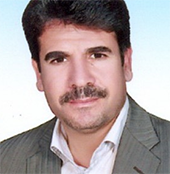Exploring the effectiveness of virtual education of laboratory courses of chemistry student-teachers in the corona era
With the spread of COVID-19 and the closure of universities, the possibility of holding face-to-face chemistry laboratory courses was lost. And universities inevitably used alternative solutions to provide laboratory courses. Farhangian University, like other university centers, switched to online education. This current research aimed to investigate the level of mastery of computer skills and digital literacy, as well as the quality of teaching and the effectiveness of virtual teaching of chemistry laboratory courses from the perspective of chemistry student-teachers at Farhangian University.
The research was applied in terms of purpose and cross-sectional in terms of time. The research data were collected using a descriptive survey. The statistical population of the research consisted of student-teachers of Chemistry Education in the campuses and higher education centers of Farhangian University in the academic year 1400-1401, who had the experience of face-to-face and virtual education of chemistry laboratory courses. The research tool included a researcher-made questionnaire with 25 items on a 5-point Likert scale. Five chemistry faculty members of Farhangian University confirmed the validity of the questionnaire, and its reliability was calculated by Cronbach's alpha method, with a coefficient of 0.97. The questionnaire was prepared through Google Forms. After obtaining legal permissions, the questionnaire link was sent to the target group via email. And they were asked to complete the questionnaire if they were satisfied. A total of 180 students completed the questionnaire and submitted it. The collected data were analyzed using SPSS (20.00) software and descriptive and inferential statistical methods. Semi-structured interviews were conducted with 10 participants. Participants were assured that they would remain anonymous.
Overall, participants' opinion about computer skills and digital literacy was favorable ( = 4.38, p < 0.05). In the components of the quality of education ( = 3.22, p < 0.05) and the effectiveness of virtual education of chemistry laboratory courses ( = 3.15 and p < 0.05), relatively favorable score were obtained. The difference in the average score of the research components according to the year of entering the university was not statistically significant. However, there was a statistically significant difference between the average score of the quality of education component according to the gender of student teachers. Tukey's post hoc test showed that male participants obtained a higher average score in the education quality component than female participants. The students' opinions on two items, "I was satisfied with conducting laboratory units virtually" and "the level of learning in online chemistry laboratory classes was good", were unfavorable. Examining the interviews showed that students often described their computer skills and digital literacy as favorable, although they were dissatisfied with the lack of computer skills of some professors. Several interviewees stated that some professors tried to make teaching as effective as possible using virtual laboratory software, videos, and related clips.
Respondents' dissatisfaction with conducting chemistry laboratory units in a virtual way and their level of learning in online classes of chemistry laboratories was not favorable, showing that the level of satisfaction with the virtual education of chemistry laboratory courses presented in a virtual way was not good. Most interviewees admitted that the disadvantages of virtual classes were more than their advantages. There may be a direct relationship between greater satisfaction with the quality of education in the group of males and the probability of their employment and earnings money. In conclusion, the best method to improve online education is a combination of digital literacy, computer skills, creativity, using different educational tools, and active teaching-learning approaches. These results can be provided to administrators and planners of Farhangian University and the Ministry of Education. These results can help them to use operational strategies to compensate for possible deficiencies in the professional competence of chemistry student teachers in the laboratory courses provided virtually.
- حق عضویت دریافتی صرف حمایت از نشریات عضو و نگهداری، تکمیل و توسعه مگیران میشود.
- پرداخت حق اشتراک و دانلود مقالات اجازه بازنشر آن در سایر رسانههای چاپی و دیجیتال را به کاربر نمیدهد.




